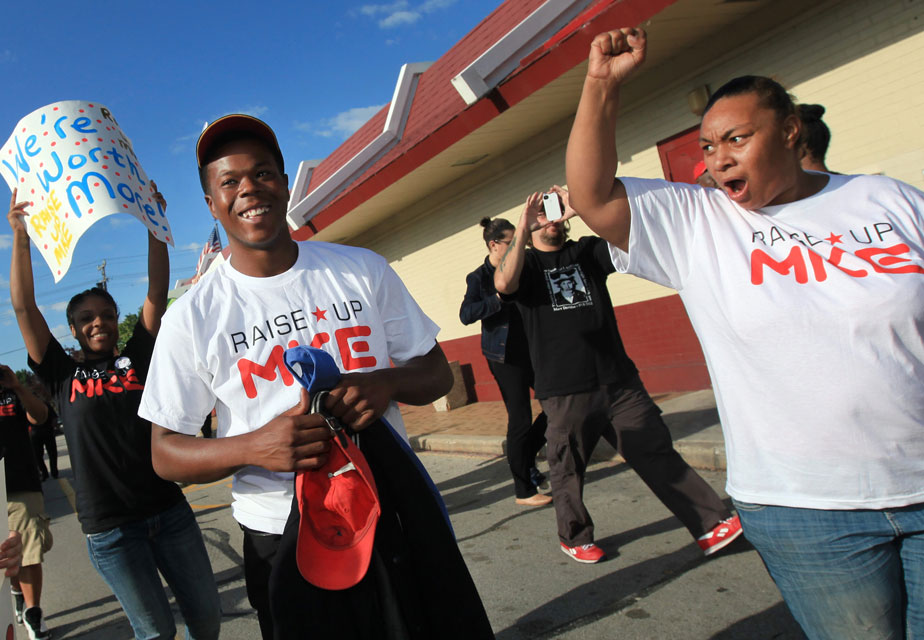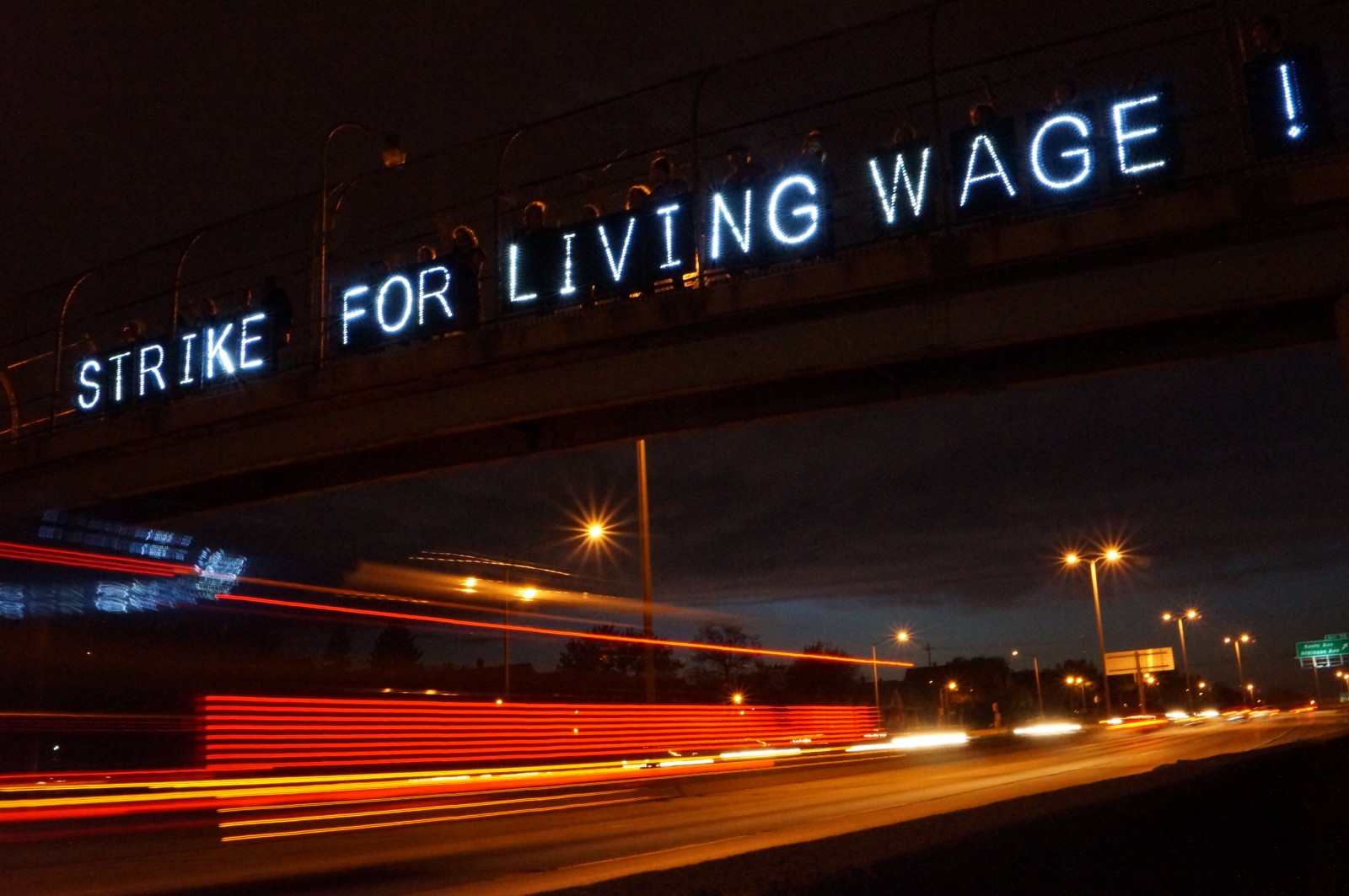
Thousands of fast-food and retail workers are set to go on strike across the United States on Thursday to push for a $15 hourly wage, after a similar action last month bolstered confidence but not pay, organizers said.
"If you work in a fast-food or retail store anywhere in the country, we urge you to join our growing movement," striker Terrance Wise said in a news release earlier this month.
Wise, 34, is a Kansas City-based father of three who says he earns $9.30 an hour at Burger King, where he has worked for eight years.
Burger King had not responded to an interview request regarding Wise's wages by the time of publication.
About 1,000 strikers participated in the previous action in July, according to Martin Rafanan of Missouri Jobs with Justice. The group is coordinating the strikes together with similar grass-roots organizations across the country and larger advocacy groups, like the Service Employees International Union.
The more than four million fast-food workers in the United States made an average annual wage of $18,130 in 2010, according to the Bureau of Labor Statistics.
Restaurant industry advocates have already criticized the planned strike.
"We welcome a debate on fair wages, but it needs to be based on facts. And the facts show that the majority of workers who earn the minimum wage in the United States are not employed in the restaurant industry," the National Restaurant Association's vice president of labor and workforce policy, Angelo Amador, told Al Jazeera.
An Association spokeswoman, Christin Fernandez, told Al Jazeera that "restaurants already operate on very thin profit margins. Significant additional labor costs can negatively impact a restaurant's ability to hire or maintain jobs."
Some workers have reportedly faced dismissal for participating in the strikes.
According to Rafanan, one of the participants in July’s actions was fired for striking, but pressure from other strikers and organizers pushed the employer to re-hire the striker, who eventually got a raise.
"If workers see the community will stand up for their rights, that will empower others," Rafanan said.
In most cases, it is illegal in the United States to fire workers solely because they go on strike, but companies can replace striking employees to fill vacant positions in some instances.
Although for most strikers the actions have not yet achieved their dual objectives of garnering a $15 per hour wage and allowing them to unionize without alleged pressure from management, organizers said the strikes emboldened workers to advocate for what they consider to be a fair wage and work environment.
"The strike gives workers hope. It shows them they do not stand alone. It gives them a space to build a movement," Rafanan said.
McDonald’s sales rose by 0.7 percent in July despite the walk-outs, according to Bloomberg. Organizers said the strikes are not a boycott and do not aim to affect corporate earnings.
3 WAYS TO SHOW YOUR SUPPORT
- Log in to post comments

















